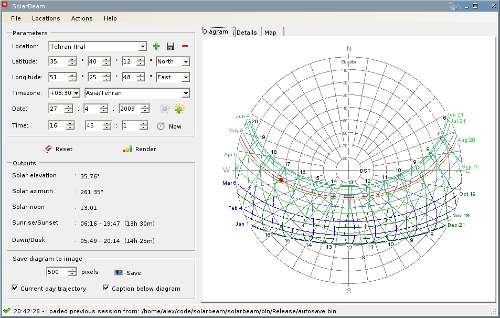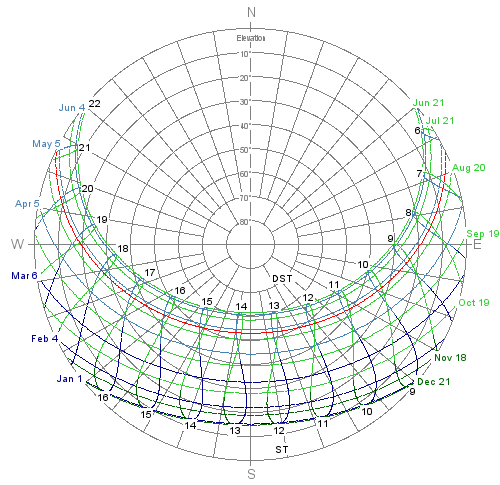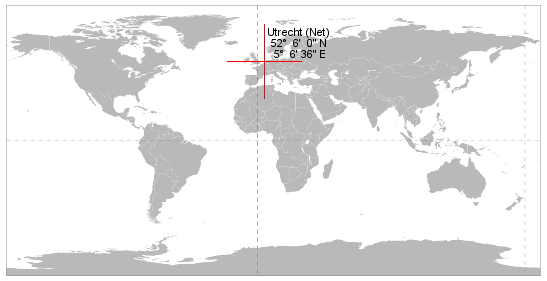Yes, it's time for part two. If you're here it's probably because someone said "fixed in svn", and for most users of course that doesn't matter, but if you're a developer you might need to keep up with the latest.
Now, it's one thing to do a single install and it's another to do it repeatedly. So I decided to do something about it. Here is the script, just as quick and dirty and unapologetic as the language it's written in. To make up for that I've called it emerge.pl to give it a positive association.
What it does is basically encapsulate the findings from last time and just put it all into practice. Including setting up the parallel build environment for you. Just remember that once it's done building, source the env.sh file it spits out to run the installed binaries.
$ ./emerge.pl merge world
$ . env.sh
$ monodevelop &
This is pretty simple stuff, though. Just run through all the steps, no logging. If it fails at some point during the process it stops so that you can see the error. Then if you hit Enter it continues.
#!/usr/bin/perl
# Copyright (c) 2009 Martin Matusiak <numerodix@gmail.com>
# Licensed under the GNU Public License, version 3.
#
# Build/update mono from svn
use warnings;
use Cwd;
use File::Path;
use Term::ReadKey;
my $SRCDIR = "/ex/mono-sources";
my $DESTDIR = "/ex/mono";
sub term_title {
my ($s) = @_;
system("echo", "-en", "\033]2;$s\007");
}
sub invoke {
my (@args) = @_;
print "> "; foreach my $a (@args) { print "$a "; }; print "\n";
$exit = system(@args);
return $exit;
}
sub dopause {
ReadMode 'cbreak';
ReadKey(0);
ReadMode 'normal';
}
sub env_var {
my ($var) = @_;
my ($val) = $ENV{$var};
return defined($val) ? $val : "";
}
sub env_get {
my ($env) = {
DYLD_LIBRARY_PATH => "$DESTDIR/lib:" . env_var("DYLD_LIBRARY_PATH"),
LD_LIBRARY_PATH => "$DESTDIR/lib:" . env_var("LD_LIBRARY_PATH"),
C_INCLUDE_PATH => "$DESTDIR/include:" . env_var("C_INCLUDE_PATH"),
ACLOCAL_PATH => "$DESTDIR/share/aclocal",
PKG_CONFIG_PATH => "$DESTDIR/lib/pkgconfig",
XDG_DATA_HOME => "$DESTDIR/share:" . env_var("XDG_DATA_HOME"),
XDG_DATA_DIRS => "$DESTDIR/share:" . env_var("XDG_DATA_DIRS"),
PATH => "$DESTDIR/bin:$DESTDIR:" . env_var("PATH"),
PS1 => "[mono] \\w \\\$? @ ",
};
return $env;
}
sub env_set {
my ($env) = env_get();
foreach my $key (keys %$env) {
if ((!exists($ENV{$key})) || ($ENV{$key} ne $env->{$key})) {
$ENV{$key} = $env->{$key};
}
}
}
sub env_write {
my ($env) = env_get();
open (WRITE, ">", "env.sh");
foreach my $key (keys %$env) {
my ($line) = sprintf("export %s=\"%s\"\n", $key, $env->{$key});
print(WRITE $line);
}
close(WRITE);
}
sub pkg_get {
my ($name, $svnurl) = @_;
my $pkg = {
name => $name,
dir => $name, # fetch to
workdir => $name, # build from
svnurl => $svnurl,
configurer => "autogen.sh",
maker => "make",
installer => "make install",
};
return $pkg;
}
sub pkg_print {
my ($pkg) = @_;
foreach my $key (keys %$pkg) {
printf("%14s : %s\n", $key, $pkg->{$key});
}
print("\n");
}
sub pkg_action {
my ($action, $dir, $pkg, $code) = @_;
# Report on action that is to commence
term_title(sprintf("Running %s %s", $action, $pkg->{name}));
# Create destination path if it does not exist
my ($path) = File::Spec->catdir($SRCDIR, $dir);
unless (-d $dir) {
mkpath($path);
}
# Chdir to source path
my ($cwd) = getcwd();
chdir($path);
# Set environment
env_set();
# Perform action
my ($exit) = &$code;
# Chdir back to original path
chdir($cwd);
# Check exit code
if ($exit == 0) {
term_title(sprintf("Done %s %s", $action, $pkg->{name}));
} else {
term_title(sprintf("Failed %s %s", $action, $pkg->{name}));
dopause();
}
}
sub pkg_fetch {
my ($pkg, $rev) = @_;
if (exists($pkg->{svnurl})) {
my $code = sub {
return invoke("svn", "checkout", "-r", $rev, $pkg->{svnurl}, ".");
};
pkg_action("fetch", $pkg->{dir}, $pkg, $code);
}
}
sub pkg_configure {
my ($pkg) = @_;
if (exists($pkg->{configurer})) {
my $code = sub {
my ($configurer) = $pkg->{configurer};
if (!-e $configurer) {
if (-e "configure") {
$configurer = "configure";
}
}
return invoke("./$configurer --prefix=$DESTDIR");
};
pkg_action("configure", $pkg->{workdir}, $pkg, $code);
}
}
sub pkg_premake {
my ($pkg) = @_;
if (exists($pkg->{premaker})) {
my $code = sub {
return invoke($pkg->{premaker});
};
pkg_action("premake", $pkg->{workdir}, $pkg, $code);
}
}
sub pkg_make {
my ($pkg) = @_;
if (exists($pkg->{maker})) {
my $code = sub {
return invoke($pkg->{maker});
};
pkg_action("make", $pkg->{workdir}, $pkg, $code);
}
}
sub pkg_install {
my ($pkg) = @_;
if (exists($pkg->{installer})) {
my $code = sub {
return invoke($pkg->{installer});
};
pkg_action("install", $pkg->{workdir}, $pkg, $code);
}
}
sub pkglist_get {
my $mono_svn = "svn://anonsvn.mono-project.com/source/trunk";
my (@pkglist) = (
{"libgdiplus" => "$mono_svn/libgdiplus"},
{"mcs" => "$mono_svn/mcs"},
{"olive" => "$mono_svn/olive"},
{"mono" => "$mono_svn/mono"},
{"debugger" => "$mono_svn/debugger"},
{"mono-addins" => "$mono_svn/mono-addins"},
{"mono-tools" => "$mono_svn/mono-tools"},
{"gtk-sharp" => "$mono_svn/gtk-sharp"},
{"gnome-sharp" => "$mono_svn/gnome-sharp"},
{"monodoc-widgets" => "$mono_svn/monodoc-widgets"},
{"monodevelop" => "$mono_svn/monodevelop"},
{"paint-mono" => "http://paint-mono.googlecode.com/svn/trunk"},
);
my (@pkgs);
foreach my $pkgh (@pkglist) {
# prep
my @ks = keys(%$pkgh); my $key = $ks[0];
# init pkg
my $pkg = pkg_get($key, $pkgh->{$key});
# override defaults
if ($pkg->{name} eq "mcs") {
delete($pkg->{configurer});
delete($pkg->{maker});
delete($pkg->{installer});
}
if ($pkg->{name} eq "olive") {
delete($pkg->{configurer});
delete($pkg->{maker});
delete($pkg->{installer});
}
if ($pkg->{name} eq "mono") {
$pkg->{premaker} = "make get-monolite-latest";
}
if ($pkg->{name} eq "gtk-sharp") {
$pkg->{configurer} = "bootstrap-2.14";
}
if ($pkg->{name} eq "gnome-sharp") {
$pkg->{configurer} = "bootstrap-2.24";
}
if ($pkg->{name} eq "paint-mono") {
$pkg->{workdir} = File::Spec->catdir($pkg->{dir}, "src");
}
push(@pkgs, $pkg);
}
return @pkgs;
}
sub action_list {
my (@pkgs) = pkglist_get();
foreach my $pkg (@pkgs) {
printf("%s\n", $pkg->{name});
}
}
my %actions = (
list => -1,
merge => 0,
fetch => 1,
configure => 2,
make => 3,
install => 4,
);
sub action_merge {
my ($action, @worklist) = @_;
# spit out env.sh to source when running
env_write();
# init source dir
unless (-d $SRCDIR) {
mkpath($SRCDIR);
}
my (@pkgs) = pkglist_get();
foreach my $pkg (@pkgs) {
# filter on membership in worklist
if (grep {$_ eq $pkg->{name}} @worklist) {
pkg_print($pkg);
# fetch
if (($action == $actions{merge}) || ($action == $actions{fetch})) {
my $revision = "HEAD";
pkg_fetch($pkg, $revision);
}
# configure
if (($action == $actions{merge}) || ($action == $actions{configure})) {
pkg_configure($pkg);
}
if (($action == $actions{merge}) || ($action == $actions{make})) {
# premake, if any
pkg_premake($pkg);
# make
pkg_make($pkg);
}
# install
if (($action == $actions{merge}) || ($action == $actions{install})) {
pkg_install($pkg);
}
}
}
}
sub parse_args {
if (scalar(@ARGV) == 0) {
printf("Usage: %s <action> [<pkg1> <pkg2> | world]\n", $0);
printf("Actions: %s\n", join(" ", keys(%actions)));
exit(2);
}
my ($action) = $ARGV[0];
if (!grep {$_ eq $action} keys(%actions)) {
printf("Invalid action: %s\n", $action);
exit(2);
}
my (@pkgnames) = splice(@ARGV, 1);
if (grep {$_ eq "world"} @pkgnames) {
@allpkgs = pkglist_get();
@pkgnames = ();
foreach my $pkg (@allpkgs) {
push(@pkgnames, $pkg->{name});
}
}
return (action => $action, pkgs => \@pkgnames);
}
sub main {
my (%input) = parse_args();
printf("Action selected: %s\n", $input{action});
if (scalar(@{ $input{pkgs} }) > 0) {
printf("Packages selected:\n");
foreach my $pkgname (@{ $input{pkgs} }) {
printf(" * %s\n", $pkgname);
}
print("\n");
}
if ($actions{$input{action}} == $actions{list}) {
action_list();
exit(2);
}
action_merge($actions{$input{action}}, @{ $input{pkgs} })
}
main();




 May 2nd, 2009
May 2nd, 2009
